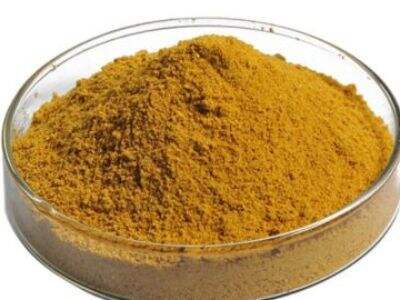Ever wonder what cows eat? It is a very large diet which has a variety of foodstuffs that we will look at. One key component of their diet are something is known as amino acids. Amino acids: The building blocks of proteins These proteins are essential as they allow the cows to grow strong and healthy. This article helps us understand the various amino acids in cattle feed and Why Amino acids are the building blocks of life for cows.
The -shims-feed-n-feed-1 1 Understanding of Amino Acids for Cattle 1- 2 because of the importance of amino acid nutrition in cattle.
There are actually 20 different types of amino acids that constitute every protein in every organism known to man. Among these 20 amino acids, nine are classified as essential for the cow. This implies that cows are unable to synthesize these amino acids independently. Instead, they have to obtain these essential vitamins through their diet. These are the nine amino acids that cows require:
Methionine – an amino acid which assists in cow muscle and tissue growth and repair It is essential for their well-being.
Lysine — Lysine is one of many essential amino acids required for milk production for female cows, and the other necessary elements required for bone growth and muscle development. Fundamental for cow nutrition.
Histidine: This amino acid is essential for production of red blood cells needed for transporting oxygen through your blood. It is also an important amino acid for the immune system, which assists cows in fighting off sickness.
Arginine — Arginine is important for protein synthesis and the production of prostate fluid. It improves circulation and aids in immune health.
Threonine — Needed for growth and producing antibody proteins needed for the cows to fight off infections.
Tryptophan: essential for milk production, tryptophan also helps to regulate mood and manage stress in cows; This helps cows to feel more comfortable and happy.
Valin, also increases building blocks for muscles, assisting with exercise recovery and keeping cows strong.
Leucine: It plays a significant role in protein synthesis and muscle development and vital for energy production. It is very important for cows that are active.
Isoleucine — Isoleucine plays a role in muscle growth and repair while also helping with blood sugar regulation, which is necessary when it comes to energy.
Amino Acids in Cattle Feed
The proportion of amino acids in different cattle feed varies. Some of the common cattle feed ingredients along with amino acids they offer are:
Corn–Corn is a staple fed to cows. High in lysine and tryptophan and low in methionine Cows tend to gain energy from corn.
Soybean Meal — This is an excellent source of all essential amino acids, particularly lysine. It is commonly used to fulfill nutritional requirements in cattle feeds.
Alfalfa hay — Alfalfa hay is a popular source of threonine and histidine. But it is limited in lysine and methionine, and may have to be balanced with other feeds.
Wheat: Wheat has an abundance of lysine and tryptophan but is low in methionine. Cows can obtain energy and some other essential amino acids from it.
Cottonseed meal- This type of feed is high in lysine and methionine but low in tryptophan. Its ability to help balance cattle feed nutrition.
Got813x843606666-3 Why Balance Amino Acids in the Diets of Cows?
People eat diverse foods in a well-balanced diet to remain healthy and robust; so does cows. They require all of the essential amino acids, but it is crucial that they are at the correct ratios. When a cow is deficient in one of the amino acids, she struggles to utilize the rest. As an example, if a cow has an insufficient dietary amount of lysine, she may cannibalize her own muscle in order to obtain the amino acid. This results in muscle smelting and low development compounding the adverse health of the cow.
Using Nutrients In The Right Way: How Farmers Aid Amino Acid Supply To Cows
Farmers provide supplemental amino acids in cow feed to ensure cows receive all of the necessary amino acids. And these additional amino acids are manufactured in a laboratory and they are identical to the amino acids in natural foods. Farmers are fortifying the cows feed with these synthetic amino acids, which helps ensure cows receive all the nutrients required for ideal growth and healthy life.
Interface between Feed Quality and Amino Acids
The composition of proteins in the cattle feed might also vary the number of amino acids become available to cows. Low-quality hay, for instance, might contain fewer amino acids than high-quality hay. This occurs because the protein in low-grade hay may become spoiled by conditions such as mold, insects, and poor storage conditions. Cows which a fed low quality feed also might not having enough amino acids which result cow may be growth problem and poor health.
To sum it up, amino acids are a very important component of your cow's diet. To make sure that their cows are consuming an appropriate balance, farmers must be especially attentive to the amino acid content of their beef cattle feed. If farmers understand what are the essential amino acids and the types of feed available, it helps farmers know what to supplement and its the quality of feed. This ensures their cows stay healthy and continue to produce milk. Fulaier offers a variety of animal nutrition products that are useful in animal husbandry, asymptomatic cows can also be fed the mentioned products, so farmers can rest assured that they are feeding their cows a diet that can adequately meet the needs of nutrients.

